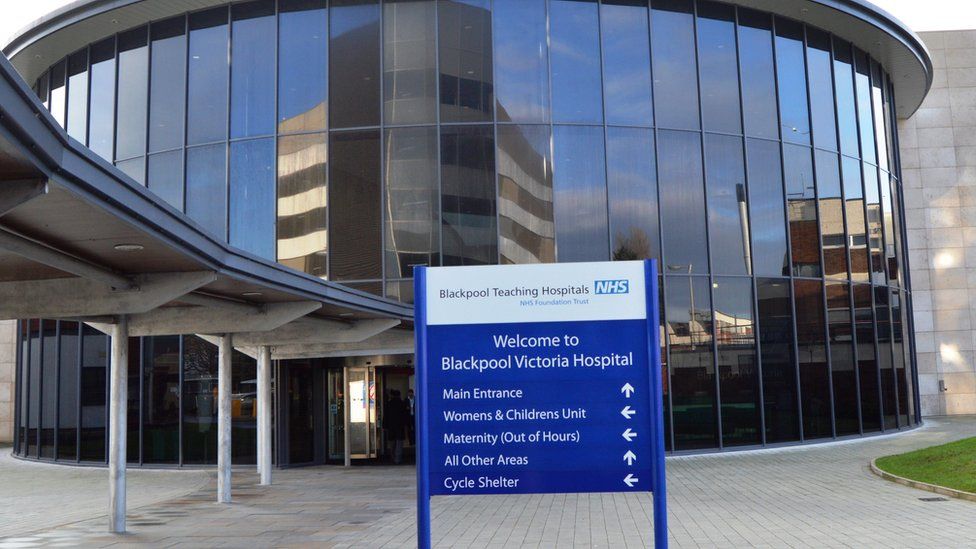Monkeypox: Heathcare worker is third UK case of disease
- Published

A healthcare worker has become the third person in England to be diagnosed with monkeypox.
Public Health England (PHE) said the infected person was involved in the care of a patient at Blackpool Victoria Hospital who was treated there prior to their diagnosis.
The person has been isolated and is being treated at Royal Victoria Infirmary, Newcastle.
The first two cases had been patients who had spent time in Nigeria.
Dr Nick Phin, deputy director of PHE's national infection service, said it had been "actively monitoring contacts" for 21 days after exposure.
"It is therefore not wholly unexpected that a case has been identified," he said.
"This person has been isolated and we are taking a highly precautionary approach to ensure that all contacts are traced."
The disease was first diagnosed in the UK in a patient who was staying at a naval base in Cornwall.
Public Health England said there was no UK link between the first two patients.
The first and second cases continue to be treated in specialist isolation facilities at the Royal Free Hospital in London and the Royal Liverpool Hospital respectively.
What is monkeypox?
- Monkeypox is usually a mild self-limiting illness and most people recover within a few weeks, however severe illness can occur in some cases
- It is a rare disease caused by monkeypox virus, and has been reported mainly in central and west African countries
- It can spread when someone is in close contact with an infected person, however, there is a very low risk of transmission to the general population
- Initial symptoms include fever, headache, muscle aches, backache, swollen lymph nodes, chills and exhaustion
- A rash can develop, often beginning on the face, then spreading to other parts of the body. The rash changes and goes through different stages before finally forming a scab, which later falls off
Source: Public Health England
Related Topics
- Published11 September 2018
- Published8 September 2018